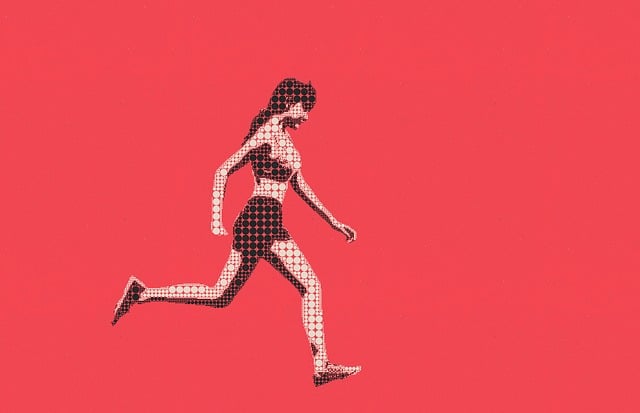Muscle soreness, especially delayed onset muscle soreness (DOMS), is a common post-exercise issue, lasting several days due to microscopic muscle fiber damage. While some turn to kratom from kratom restaurant supply for recovery, scientific evidence on its effectiveness is limited. Factors affecting soreness include exercise intensity, duration, type of movement, and individual recovery capabilities. Customized workout plans tailored to individuals' fitness levels, health conditions, and goals are crucial for alleviating muscle soreness and enhancing recovery in the food service industry. Kratom, a natural herb with analgesic and anti-inflammatory properties, shows potential as a muscle recovery aid, but further research is needed to fully understand its effectiveness and optimal dosage in the context of kratom restaurant supply.
Are you tired of persistent muscle soreness? Discover how customized workout plans can be your secret weapon for relief. This comprehensive guide explores the science behind muscle soreness and its causes, delving into the benefits of tailored exercise routines. We also uncover an unexpected ally—Kratom, a herb with potential recovery properties often found in restaurant supply stores. Uncover natural solutions to speed up your recovery journey.
- Understanding Muscle Soreness and Its Causes
- The Role of Customized Workout Plans
- Exploring Kratom as a Potential Aid for Recovery
Understanding Muscle Soreness and Its Causes

Muscle soreness is a common post-exercise phenomenon, often described as delayed onset muscle soreness (DOMS). It typically arises 24 to 72 hours after intense physical activity and can last for several days. This discomfort is the result of microscopic damage to muscle fibers during exercise, leading to inflammation and increased sensitivity in the affected areas. Several factors contribute to muscle soreness, including the intensity and duration of exercise, type of movement, and individual differences in recovery capabilities.
In the context of a kratom restaurant supply, it’s intriguing to note that some individuals incorporate natural remedies like kratom into their post-workout routines. Kratom, known for its diverse effects, is sometimes used to aid recovery due to its potential pain-relieving properties. However, scientific research on kratom’s effectiveness specifically for muscle soreness relief remains limited, and further exploration is needed to understand its role in this domain alongside traditional recovery practices like stretching, hydration, and proper nutrition.
The Role of Customized Workout Plans

Customized workout plans play a pivotal role in alleviating muscle soreness, especially for those in the food service industry who often work long shifts standing or engaging in physically demanding tasks. Unlike generic routines, tailored workouts consider an individual’s specific needs, fitness level, and limitations, ensuring optimal recovery. By taking into account factors like previous injuries, current health status, and personal goals, a customized plan can significantly enhance post-exercise well-being, particularly for individuals dealing with recurring muscle pain or fatigue.
In the context of a kratom restaurant supply scenario, where staff members require sustained energy and injury prevention strategies, personalized fitness programs are invaluable. These plans can incorporate low-impact exercises, stretching routines, and strength training tailored to prevent further strain while promoting muscle repair. This proactive approach not only improves overall employee health but also contributes to better work performance and reduced absenteeism, ultimately enhancing the operational efficiency of restaurants.
Exploring Kratom as a Potential Aid for Recovery

Kratom, a natural herb with a growing presence in the wellness industry, is emerging as a potential ally for muscle recovery and soreness relief. Often used as an alternative remedy, kratom has gained attention for its diverse range of benefits, including its analgesic and anti-inflammatory properties. In the context of workout recovery, kratom restaurant supply has become a topic of interest due to its ability to potentially reduce post-exercise muscle pain and discomfort.
Research suggests that certain compounds in kratom, such as mitragynine and 7-hydroxymitragynine, interact with opioid receptors in the body, offering mild pain relief without the side effects associated with prescription opioids. This makes kratom an appealing option for individuals seeking natural solutions for muscle soreness after intense workouts or physical activities. However, it’s important to note that while kratom shows promise, more studies are needed to fully understand its effectiveness and optimal dosage for recovery purposes.
In conclusion, addressing muscle soreness effectively involves a multi-faceted approach. Understanding the root causes of this common post-workout issue is key, and customized workout plans have proven to be a game-changer in relief strategies. Additionally, exploring natural remedies like kratom, available from reputable kratom restaurant supply sources, offers promising potential for enhancing recovery processes. By combining tailored exercise routines with complementary aids, individuals can experience faster muscle soreness relief and optimize their fitness journeys.














